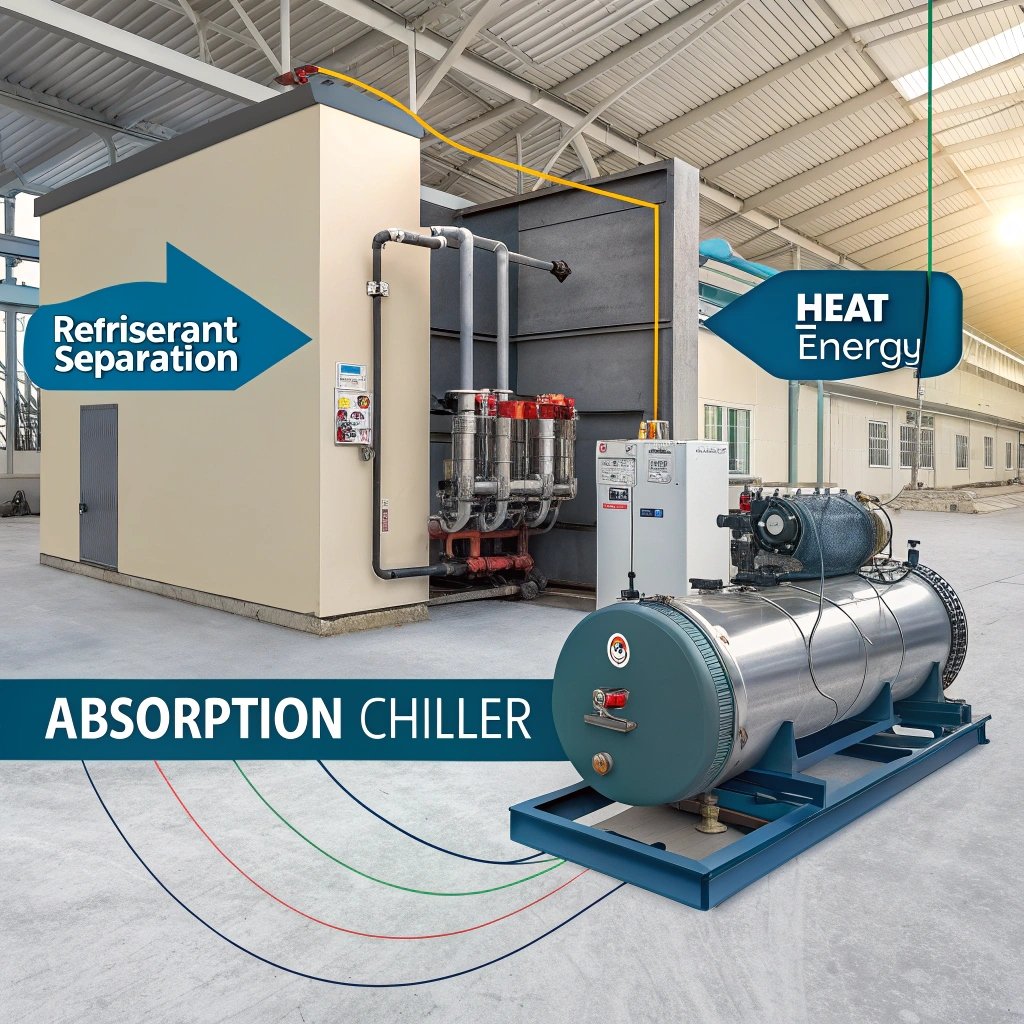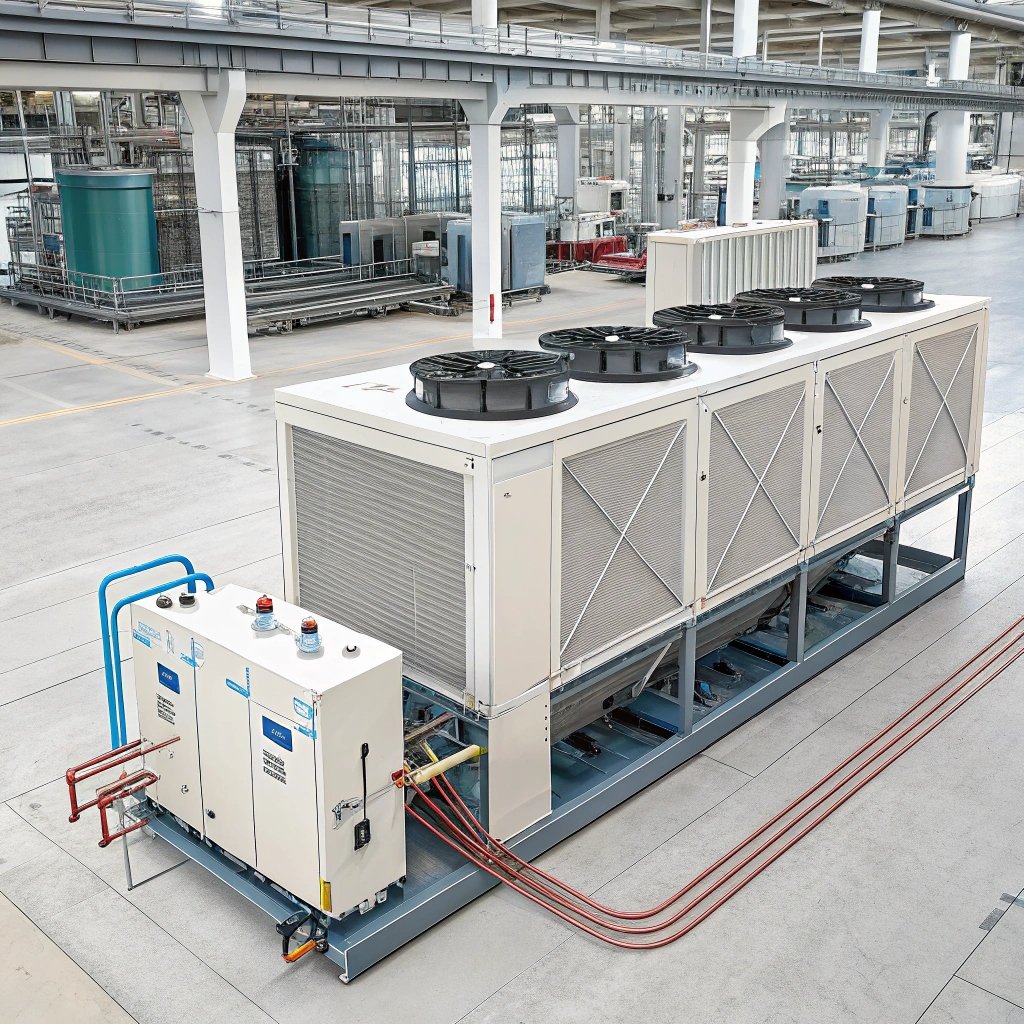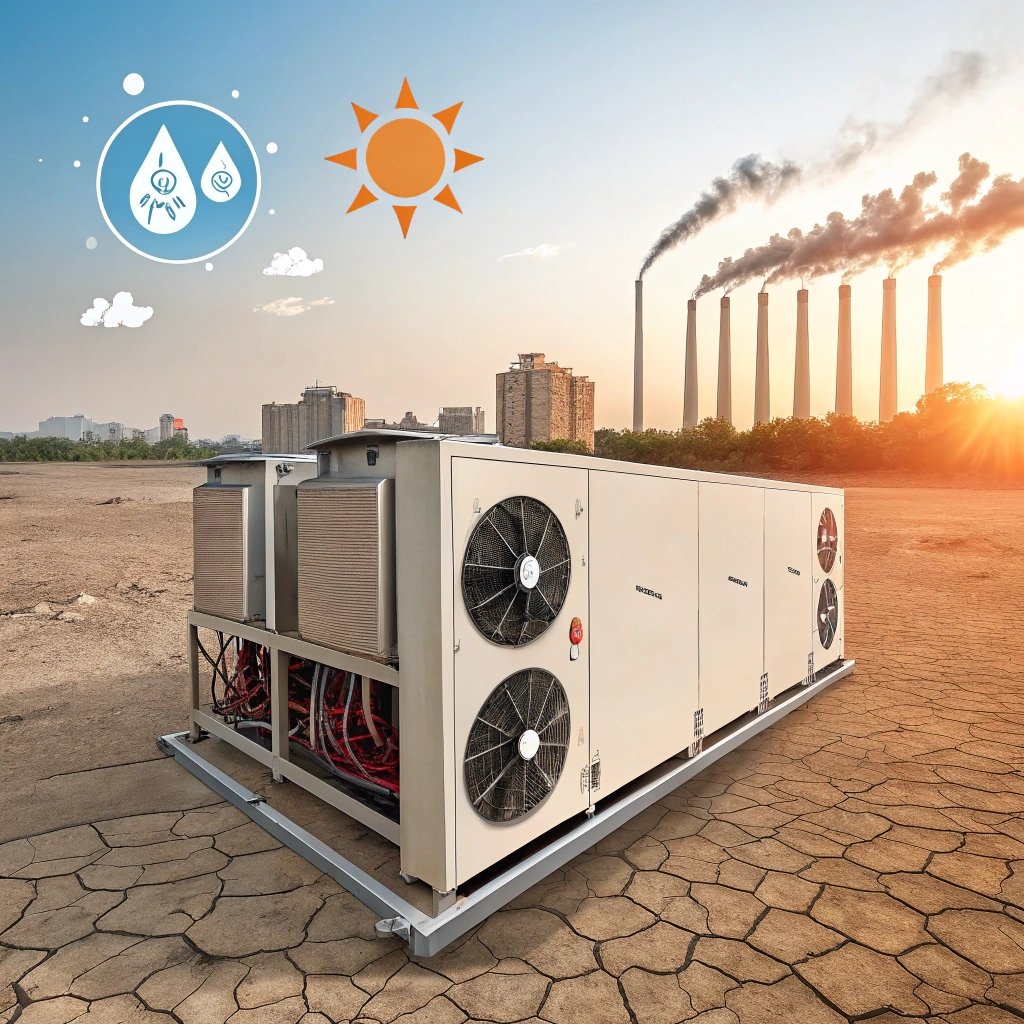Is a compressor necessary for an air chiller to function?

leading paragraph:
Have you ever wondered if an air chiller can operate without a compressor? The compressor is a key component, but does that mean it's absolutely necessary for a chiller to work?
featured Paragraph:
Yes, a compressor is essential for the functioning of most air chillers. It helps to circulate the refrigerant, enabling the system to absorb and expel heat efficiently, which is the core of the cooling process.
Transition Paragraph:
Understanding the role of the compressor can shed light on why it's crucial for an air chiller. Let’s take a closer look at the function of the compressor and what happens if it’s missing.
What is the Role of a Compressor in an Air Chiller?
leading paragraph:
When you think about an air chiller, you might imagine a large machine with pipes and coolants. But at the heart of it all, there’s the compressor. Why is this component so important?
featured Paragraph:
A compressor in an air chiller pressurizes the refrigerant, allowing it to flow through the system and remove heat from the air. Without it, the refrigerant wouldn't circulate, and cooling would be impossible.

Dive deeper Paragraph:
The compressor is the workhorse of the air chiller. Here's how it works:
- Compression Process: The compressor takes in low-pressure refrigerant gas and compresses it into high-pressure gas.
- Circulation of Refrigerant: This pressurized gas is then sent to the condenser, where it releases heat and cools down.
- Heat Exchange: After the refrigerant cools, it moves to the expansion valve, where its pressure is reduced, turning it into a liquid again. Then, it returns to the evaporator, where it absorbs heat, repeating the cycle.
Without the compressor, none of this would happen. The refrigerant needs to be pressurized and circulated to move heat away from the air or liquid being cooled. The compressor essentially drives the entire refrigerant cycle, which is how chillers maintain low temperatures.
An air chiller without a compressor would fail to circulate refrigerant, and thus, it wouldn’t be able to cool effectively. While there are some alternative cooling systems like absorption chillers that do not use compressors, these are much less common in typical industrial and commercial air chillers.
Can an Air Chiller Work Without a Compressor?
leading paragraph:
You might be asking, “If compressors are so crucial, could an air chiller function without one at all?” The answer depends on the type of chiller, but for most modern units, the answer is no.
featured Paragraph:
While a compressor is necessary for most chillers, there are alternative systems such as absorption chillers that don’t rely on a compressor. These systems use heat to drive the cooling process instead of mechanical compression.

Dive deeper Paragraph:
Absorption chillers represent a major exception to the rule. These chillers do not rely on mechanical compressors but instead use heat energy to drive the cooling process. They operate by using a combination of water and a refrigerant (usually lithium bromide or ammonia). Here’s how it works:
- Absorption Process: The refrigerant absorbs heat from the space to be cooled, turning into a vapor.
- Heat Application: The vapor is then absorbed into a solution, typically water. This process removes heat from the refrigerant and helps to cool the area.
- Separation: The refrigerant is then separated from the solution, using heat to drive the refrigerant back into a gaseous state, and the cycle continues.
While absorption chillers don’t use compressors, they are not as widely used as traditional compressor-based chillers. They require a heat source (like natural gas, steam, or solar heat) and are more common in specific applications where electricity consumption needs to be minimized, or where heat sources are already available.
For most commercial, industrial, and residential applications, however, compressors are an indispensable part of air chillers, driving the refrigerant cycle that is essential for cooling.
Why Can’t Most Air Chillers Function Without a Compressor?
leading paragraph:
You might still be wondering why a compressor is absolutely necessary for the vast majority of air chillers. Why can’t they just use a different method to circulate the refrigerant?
featured Paragraph:
The compressor is what pressurizes the refrigerant to enable its flow through the chiller system. Without it, the refrigerant wouldn’t circulate properly, and the essential process of heat transfer would fail.
| Feature | Chillers with Compressors | Chillers without Compressors (Absorption) |
|---|---|---|
| Cooling Mechanism | Compresses and circulates refrigerant | Uses heat to drive the process |
| Energy Source | Electric power for compressor | Heat source (e.g., gas, steam) |
| Efficiency | High, using mechanical refrigeration | Lower, depends on heat source availability |
| Common Applications | Industrial, commercial, HVAC systems | Specific applications with heat sources |
Dive deeper Paragraph:
The primary reason that compressors are necessary is that they provide the mechanical power to circulate refrigerant. In a standard chiller system, the compressor not only pressurizes the refrigerant but also ensures that the refrigerant cycle moves efficiently. This cycling is key to absorbing heat from the air or water and releasing it elsewhere. Without this circulation, the refrigerant would stagnate, and no cooling would occur.
In contrast, absorption chillers, which don’t use compressors, rely on heat rather than mechanical power. They are slower, less energy-efficient, and usually used in settings where a reliable heat source is already available. These systems do not provide the same level of performance or flexibility as compressor-based chillers, especially in industries or facilities that require high-efficiency cooling.
Conclusion
A compressor is a vital component of most air chillers, as it drives the circulation of refrigerant and enables the cooling process. While alternative systems like absorption chillers do exist, they are less efficient and not as widely used.
Insights:
While some alternatives to compressors exist, the majority of air chillers rely on compressors for effective and efficient cooling. Understanding this will help you choose the right system for your cooling needs, depending on factors like energy efficiency and application requirements.




